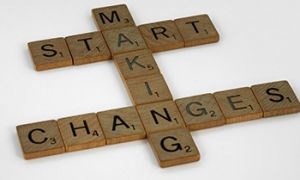Educator burnout in early childhood services is a serious issue, but there are ways to manage and prevent it. The following article provides information on What Is Burnout?, What Workplace Adjustments Can Help Reduce Burnout, Strategies On Dealing With Educator Burnout and more.
What Is Burnout?
Burnout is a state of physical, emotional, and mental exhaustion caused by prolonged stress or overwork. It often leads to decreased motivation, lower performance, and negative attitudes toward oneself and others.
Common Signs of Burnout
- Feeling exhausted or drained all the time
- Cynicism or detachment from work
- Reduced effectiveness in tasks
- Irritability or frustration
- Difficulty concentrating or making decisions
Burnout is most common in high-stress professions, such as teaching, healthcare, and social work. It can also affect athletes, caregivers, and anyone facing chronic stress.
What Workplace Adjustments Can Help Reduce Burnout?
Workplace adjustments can significantly reduce burnout and improve employee well-being. Here are some effective strategies:
1. Flexible Work Arrangements
- Allow remote work or hybrid schedules to reduce commuting stress.
- Offer flexible hours to accommodate personal needs.
2. Encouraging Breaks & Time Off
- Promote regular breaks during work hours to prevent exhaustion.
- Ensure employees take vacations and personal days without guilt.
3. Mental Health Support
- Provide access to counseling and wellness programs.
- Foster a culture where employees feel comfortable discussing stress.
4. Open Communication & Workload Management
- Encourage honest conversations about workload and expectations.
- Adjust responsibilities to prevent overwhelming employees.
5. Recognition & Career Growth
- Acknowledge employees' efforts through rewards and appreciation.
- Offer opportunities for skill development and career progression.
Strategies On Dealing With Educator Burnout
1. Address Workplace Stressors
- Improve Work-Life Balance: Ensure educators have predictable schedules and adequate breaks.
- Provide Planning Time: Give educators dedicated time for lesson preparation to reduce workload stress.
- Enhance Compensation & Benefits: Fair wages and benefits can help retain educators and reduce financial stress.
2. Strengthen Professional Support
- Coaching & Reflection: Programs that offer mentorship and reflective practices can lower burnout risk.
- Career Progression & Training: Providing opportunities for professional growth can boost morale and job satisfaction.
3. Foster a Positive Work Environment
- Build Strong Relationships: Supportive colleagues and leadership can create a healthier workplace.
- Reduce Overwork: Managing student-to-teacher ratios effectively can prevent exhaustion.
4. Prioritize Mental & Emotional Well-being
- Counseling & Wellness Programs: Access to mental health resources can help educators cope with stress.
- Recognition & Appreciation: Acknowledging educators' contributions can improve motivation and job satisfaction.
Further Reading
Supporting Mental Health Of Children, Families and Educators
Managing Stressful Moments In Early Childhood Services
Managing Underperforming Educators
Self Care For Educators







 As an Educator in Australia, your pay rate falls under the Children’s Services Award 2010. This award states the minimum amount that an employer can
As an Educator in Australia, your pay rate falls under the Children’s Services Award 2010. This award states the minimum amount that an employer can When working as a qualified Early Childhood Teacher (with a university degree) within a service, your rate of pay will come from the Educational Services
When working as a qualified Early Childhood Teacher (with a university degree) within a service, your rate of pay will come from the Educational Services When working as a Diploma Qualified Educator your pay rate is from the Children's Services Award 2010. This Award states your minimum rate of pay
When working as a Diploma Qualified Educator your pay rate is from the Children's Services Award 2010. This Award states your minimum rate of pay When working as a Cert 3 Qualified Educator, your pay rate is from the Children's Services Award 2010. This Award states your minimum rate of
When working as a Cert 3 Qualified Educator, your pay rate is from the Children's Services Award 2010. This Award states your minimum rate of Educational Leaders play a crucial role in their early childhood service by ensuring that the educational program aligns with best practices and supports the holistic
Educational Leaders play a crucial role in their early childhood service by ensuring that the educational program aligns with best practices and supports the holistic In early childhood education and care, ratios are more than a technicality—they are a frontline safeguard. Every child deserves responsive supervision, emotional connection, and developmental
In early childhood education and care, ratios are more than a technicality—they are a frontline safeguard. Every child deserves responsive supervision, emotional connection, and developmental With the new national child safety reforms kicking in on 1 September 2025, early childhood services like yours have a real opportunity to lead the
With the new national child safety reforms kicking in on 1 September 2025, early childhood services like yours have a real opportunity to lead the Here’s a comprehensive Mobile Phone and Smart Watch Policy tailored for early childhood education and care (ECEC) services in Australia, aligned with the latest 2025
Here’s a comprehensive Mobile Phone and Smart Watch Policy tailored for early childhood education and care (ECEC) services in Australia, aligned with the latest 2025 The Sea of Fish Challenge is a national initiative that invites children, educators, families, and communities to create and display fish artworks as a symbol
The Sea of Fish Challenge is a national initiative that invites children, educators, families, and communities to create and display fish artworks as a symbol Across the early childhood education and care sector, educators are sounding the alarm: current staffing ratios are insufficient to deliver safe, meaningful, and developmentally appropriate
Across the early childhood education and care sector, educators are sounding the alarm: current staffing ratios are insufficient to deliver safe, meaningful, and developmentally appropriate


